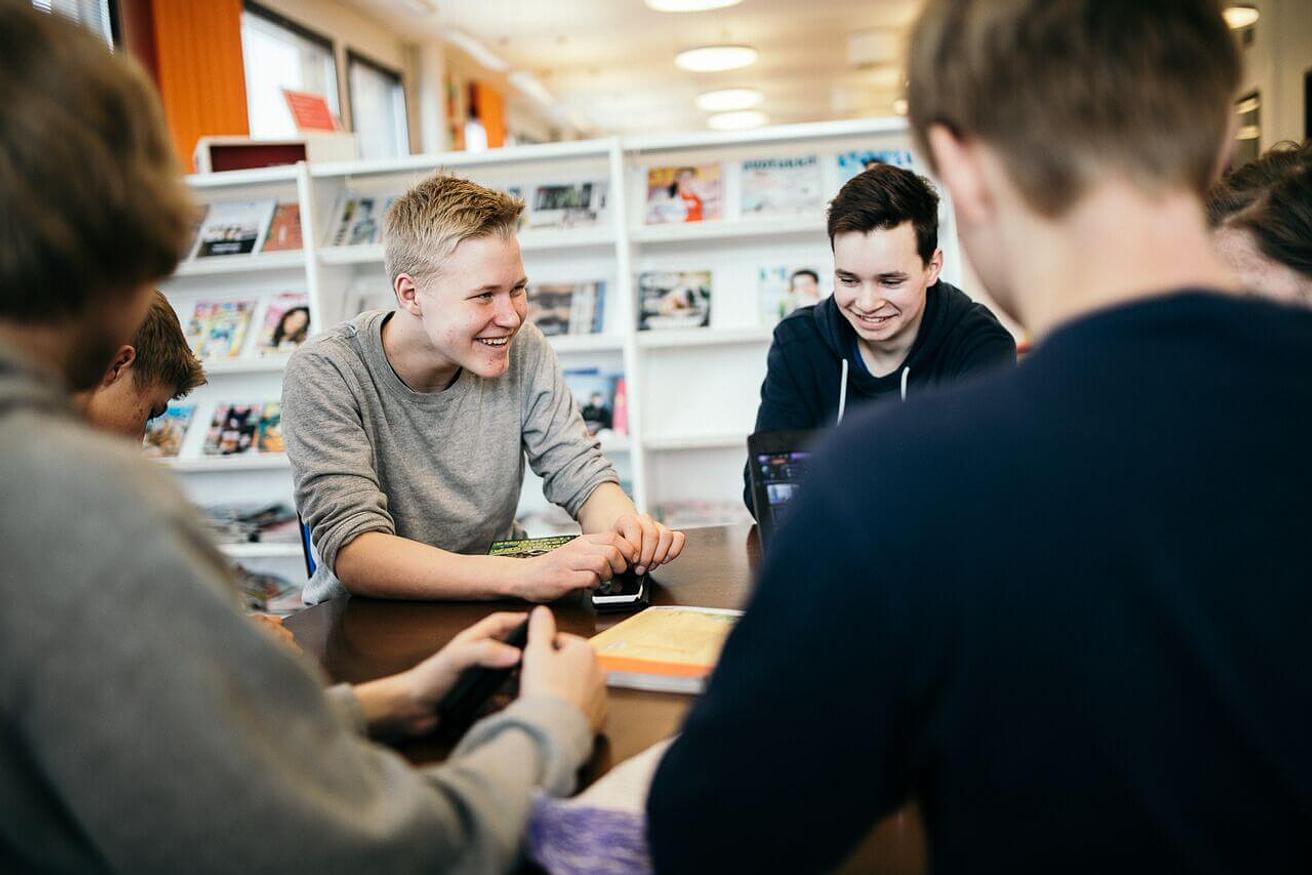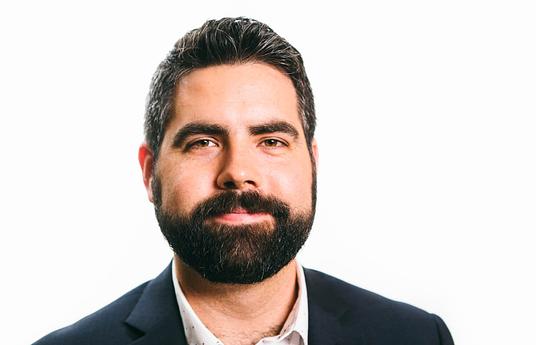Contrary to the idea that digitization and the advances in technology will shake up the educational system, it is actually age-old skills such as empathy and social skills that are being labelled as future trends for schools. Why are we returning to moralistic qualities in an age where STEM skills are usually considered the most important for school children?
‘Us and them’ has become a common dialogue in media, especially in Western territories. After a century of trying to pull down the walls that divided nations and peoples, the idea to build walls is coming back round again. A hardy argument in support for Brexit was to do with immigration, one of the American presidential candidates advocates building a wall along the Mexican border, and Europe is divided as refugees escape to the continent from their own war-torn countries, with some people calling for the Schengen Area to be closed.
This return to a divided world has made people question why there has been a shift in popular mood towards intolerance. And many point to a lack of quality education as to why people have xenophobic opinions.
Social Skills and Empathy are Educational Issues
These are not just political or social issues, but educational ones as well. There has been a call amongst educational leaders to bring soft skills such as empathy back into education, and to make them a prime focus. We saw thought-leaders calling for these issues to be dealt with in education at this year’s Campus 2016. Valuing diversity and tackling social exclusion were two of the most powerful talks at this year’s event which made an impact on the audience of 700 teachers and students. Pekka Peura, a physics and mathematics teacher, commented to HundrED's Finnish team:
‘The significance of empathy, human interaction and authentic care for one another were clearly present in the speeches of the expert keynote speakers at the Campus Seminar. The speeches were inspirational, energetic, comforting and gave hope.’

We are becoming an increasingly globalized society, so it is encouraging to see that many people are recognising the importance social and empathetic skills hold at this time. We need to shift away from the 20th century idea of individualism, which is at odds with the developments in communication and trade. Empathy allows for us to see others as human and as the world becomes increasingly interconnected we need to make sure our communities are aware of other cultures and are understanding of perspectives different from their own.
To tackle the issues we face in our globalized society, we desperately need empathetic citizens who have the skill to be able to look outside of their own experiences and lives. But how do we become empathetic?
Empathy in Education
This is not necessarily a new idea. Danish education has long included empathy in schools, all the way from pre-school to secondary education. In Denmark, empathy holds as much importance as maths or literacy. If they are already teaching empathy in schools, we know it can be done. It’s just a matter of implementing the change and giving teachers and students the knowledge and confidence to do so.
It’s easy to be downcast about what is happening throughout the world, with a heavily negative bias in news reporting. But there are inspiring trends in schools which suggest that individuals are taking the initiative for themselves and improving education from the ground-up. As Pekka told us:
‘Schools are becoming more humane - it is noticeable when following or actively taking part in the development work of schools. By intuition, my teaching methods keep developing towards more interactive and empathetic approaches. This change is happening around Finland due to teachers. Although our present societies can be quite negative, it is individuals who can effect change.’
Ideas on How to Introduce Empathy into Schools
This is a key point. Instead of waiting for institutional change, teachers across Finland are implementing the change into their classrooms independently. This is hugely encouraging and shows how teachers in other countries can follow suit. At HundrED this is our key focus. It would be fantastic for policy makers and governments to initiate change but at the heart of education is students and teachers and we believe that the power of education is also in their hands. Even better, they are in the position to make change happen instantly.
For instance, skills such as empathy don’t need to be taught in isolated lessons, they can be incorporated into existing subject areas. There are studies which show how reading can encourage empathetic tendencies in children, so subjects that centre around storytelling such as literature and drama are a great place to start. They provide the perfect landscape in which to harness and highlight emotional and social skills.
Or it might not necessarily be part of a subject, but simply how a teacher and other members of a child’s community communicate with that child. By noticing how a child is feeling and talking to them about it, we start to create an environment that is supportive and nourishing. Leading by example, we can show children how to interact with others and to be aware of other’s feelings. It is in small ways that we can bring about great change, and all of us can implement these ideals instantly in our day to day lives.
It can also be integrated into tech, incorporating old skills with the new. The rise in immersive technology, most notably recently with the explosive popularity of Pokemon Go, presents the opportunity for developing projects that put people into situations that others are experiencing. Literally (well technologically) putting them in the shoes of another. This kind of technology is breaking out of the gaming industry, into news, documentaries, education and healthcare; presenting exciting opportunities for empathetic skills to be built.
Positive Steps in Education
So really, it is not all doom and gloom – as much as our media outlets suggest. There are opportunities for humanity to continue to improve towards a more accepting and inclusive world. As Pekka found when working with us to identify education innovations to trial:
‘As an Advisory Board Member selecting the HundrED 100 Finnish experiments, I can only conclude that we are definitely moving towards a better future. We came across themes such as creativity, participation, passions, life skills, cultural competency and improving oneself. As a teacher in my profession I can agree that, although this is only the beginning of HundrED, it is the most valuable changemaker in education and in promoting broad-band competencies that I have ever encountered.’
Here at HundrED we are working hard to bring the best education innovations to the world, so that teachers and students can take ownership over education and implement techniques to make the most of their situation. It can seem daunting to tackle the huge issue of racism and xenophobia, and to try to build the vital social skills we need today. However, we need to remember that, as Matt Esterman from St Scholastica college in Australia summarises, ‘Empathy is a skill that can be learned and can be taught.’
It is not an abstract concept that people are either born with or without, or something we need to wait for institutions to insert into the curriculum. We can do it today, we can lead by example. Our educators, along with the rest of our communities, have the responsibility to encourage the skills that will both empower our young people and make the next generations ones who can appropriately handle and embrace the globalized world.
---
Teacher of mathematics and physics, Martinlaakso Upper Secondary School, Finland - Pekka Peura is a HundrED Advisory Board Member. You can read more on Pekka Peura’s visions on education on the HundrED website
Pekka is passionate about developing methods to improve the inner motivation and interaction of students. His HundrED experiment Building Personalized Learning Paths began in August 2016 as a cross-curricular course by combining maths and Finnish language lessons. Team learning through personalized learning was a key aspect of the course. They developed methods to support the teams’ mentoring and the feeling of safety. Further in the fall they will keep developing these methods and tools for physics.
---
To find out more about current trends in education, read our Campus 2016 coverage.
For further reading on the subject of empathy as a skill set, check out these articles:
Shifting Away from 20th Century Individualism
Reading Teaches Children Empathy
Teaching Empathy in Danish Schools


